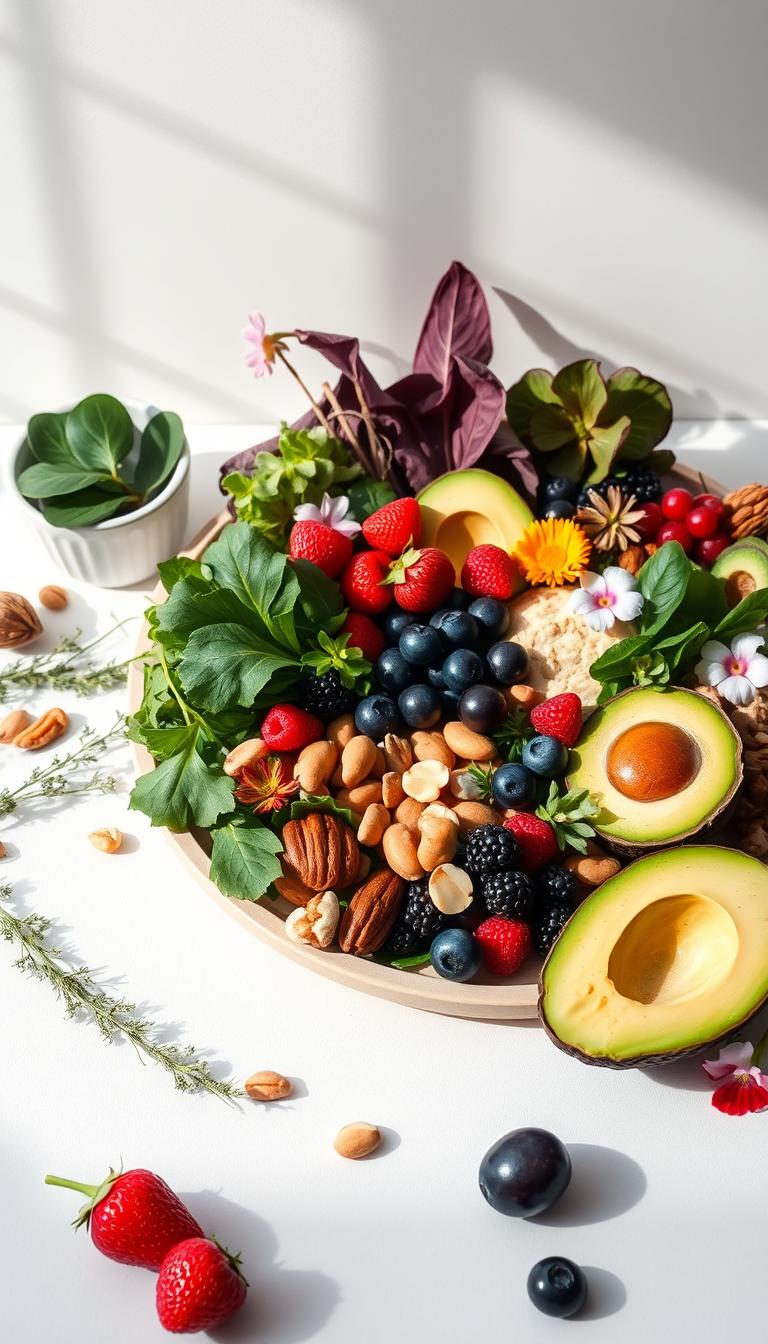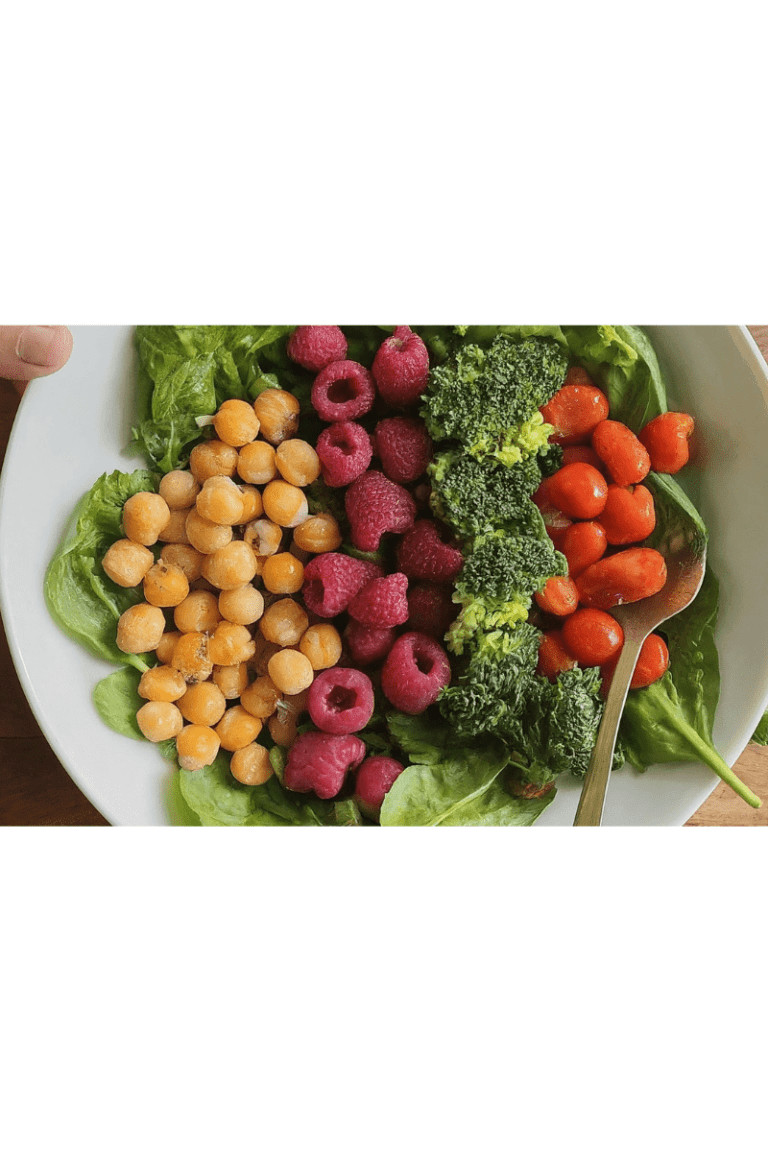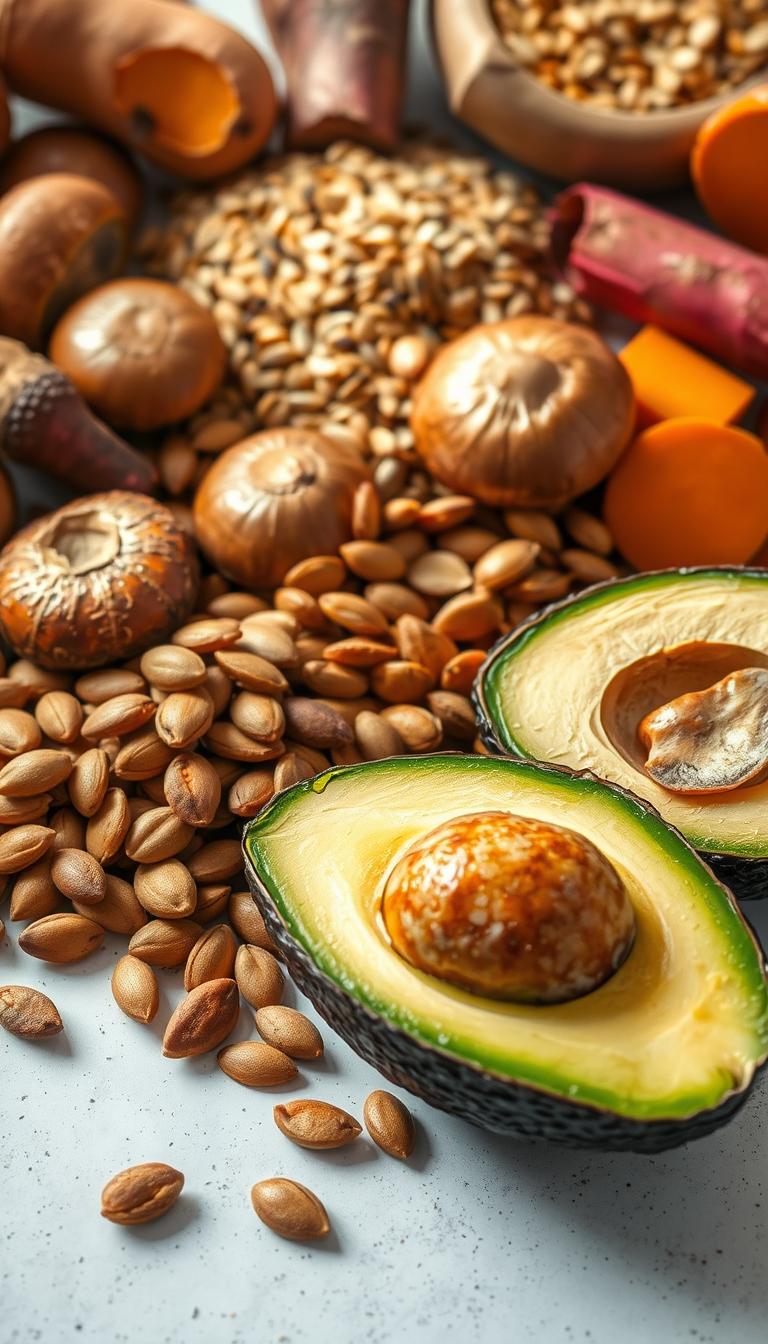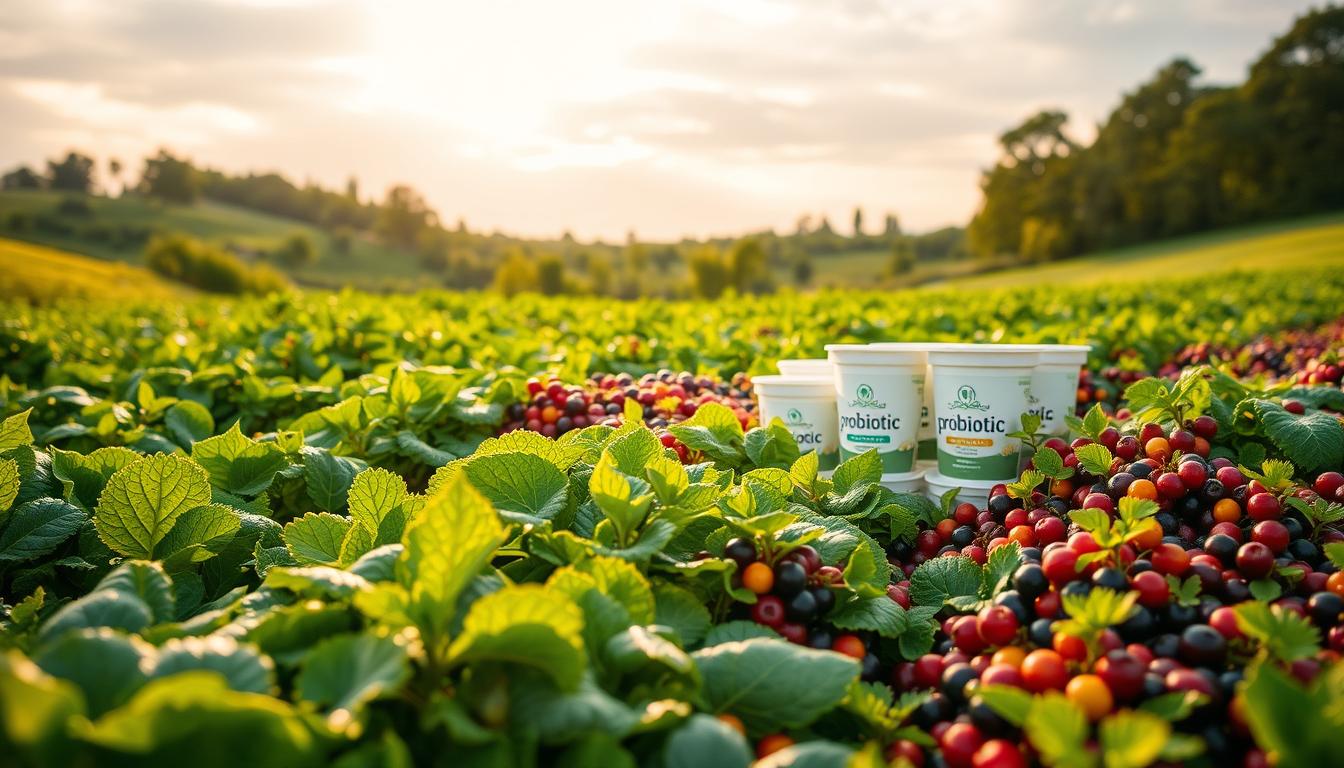
Plant-based Probiotics: Does Vegan Yogurt Have Probiotics?
When you look at the dairy section in stores, you see more non-dairy yogurts. This shows people want plant-based options. Sales of these yogurts are growing fast, up 4.9% each year until 2027. But do vegan yogurts have the same health benefits as dairy ones, like probiotics? Can they be a good choice for those on a plant-based diet?
Introduction to Plant-Based Probiotics
More people are choosing plant-based diets, and vegan yogurt is popular. But does it have probiotics? The US dairy yogurt market was worth almost $9 billion in 2017. It’s important to know the differences between non-dairy and dairy yogurts and the health perks of plant-based eating.
Key Takeaways
- Vegan yogurts are lactose-free and free of milk proteins, beneficial for those with lactose intolerance or milk allergies.
- Plant-based yogurts experienced a 31% increase in sales from April 2017 to April 2018, indicating a growing demand for non-dairy products.
- Vegan yogurt typically contains live active cultures, which are beneficial probiotics, similar to traditional dairy yogurt.
- The protein content of vegan yogurts averages around 5–6 grams per serving, with some brands offering up to 13 grams of protein per container.
- Vegan yogurts can be a healthy alternative to dairy-based yogurts, with many brands offering low sugar and high fiber options.
- The average price of vegan yogurt products ranges from $1.25 to $2.99 for a 5.3-ounce container, making them a relatively affordable option.
Understanding Vegan Yogurt and Its Rising Popularity
Vegan yogurt is getting more popular. This is because more people want plant-based milk like soy and cashew milk. They also want dairy-free options because of lactose intolerance.
Thanks to yogurt makers, making vegan yogurt at home is easy. You can use different plant-based milks.
The rise of plant-based options means more vegan yogurt choices. Soy yogurt and other alternatives are now easy to find. They’re a healthy, dairy-free option for many.
Many factors make vegan yogurt popular. Its health benefits, good for the planet, and animal welfare are key. As more people see the benefits of plant-based diets, vegan yogurt demand will keep growing.
- Plant-based yogurt alternatives offer a lactose-free option for those with lactose intolerance.
- Vegan yogurt can be made at home using a yogurt maker and plant-based milk alternatives.
- The growth of plant-based alternatives has increased the availability of vegan yogurt options.
Does Vegan Yogurt Have Probiotics? The Scientific Answer
When you look into vegan yogurt, you might ask if it has probiotics. The truth is in the fermentation process. It uses probiotic strains like L. bulgaricus. These good bacteria eat sugars, like cane sugar, making lactic acid and a creamy texture.
Coconut cream is added to make it even creamier. This makes vegan yogurt tasty and good for you.
Studies show vegan yogurts have at least 100 million CFU (colony-forming units) per gram. This ensures probiotic benefits for gut health. Common probiotic strains include Lactobacillus acidophilus, Bifidobacterium bifidum, and Lactobacillus casei. For more on probiotics in vegan yogurt, check out this resource.
When picking vegan yogurt, check the ingredients and nutrition. Some may have more saturated fat from coconut cream. Others might have more added sugar. Choose unsweetened or lightly sweetened ones for better gut health.
Types of Probiotics Found in Plant-Based Yogurts
Plant-based yogurts come in different types, thanks to brands like Kite Hill. They’ve mastered the fermentation process. This creates a tangy taste and a creamy texture. Probiotic strains like Lactobacillus acidophilus, Bifidobacterium bifidum, and Streptococcus thermophilus are added during this process.
Some yogurts also have fresh fruit for extra flavor and nutrition. But, always check the ingredients. Make sure there are no added sugars or artificial flavors.
Here are some common probiotic strains found in plant-based yogurts:
- Lactobacillus acidophilus
- Bifidobacterium bifidum
- Lactobacillus casei
- Lactobacillus rhamnosus
Plant-based yogurts have different probiotics than dairy yogurt. Dairy yogurt often has Lactobacillus bulgaricus and Streptococcus thermophilus. But, plant-based yogurts might have Lactobacillus acidophilus and Bifidobacterium bifidum instead.
Best Sources of Vegan Yogurt
There are many vegan yogurt options in the market. Almond milk yogurt is a favorite among those who eat plant-based foods. Brands like Forager Project, Oatly, and Kite Hill have a variety of flavors and textures.
When picking a vegan yogurt, check the protein content. Choose brands with high protein for a plant-based diet. Also, think about the milk alternative used, like almond, soy, or coconut milk.
Here are some popular vegan yogurt brands and their features:
- Forager Project: Offers a range of flavors and high protein content
- Oatly: Made with oat milk and offers a creamy texture
- Kite Hill: Offers a range of flavors and is made with almond milk

The right vegan yogurt for you depends on your taste and health goals. Always check labels for live cultures and high protein. This supports your health and wellbeing.
Health Benefits of Plant-Based Probiotic Yogurts
Choosing plant-based probiotic yogurts over regular yogurt is smart. You avoid animal products and might get more health perks. These yogurts come from plant milk, offering a dairy-free option. But, always check the labels for added sugar and protein content.
A quality plant-based probiotic yogurt should have little sugar and enough protein. Unlike some yogurts, these don’t need animal products for probiotics. They’re great for those wanting to cut down on saturated fats and calories.
Plant-based probiotic yogurts are good for your gut health and immune system. They can help lessen allergy and eczema symptoms. They might also help prevent and treat diarrhea. Choose a yogurt with live cultures and little sugar for the best health benefits.
Making Your Own Probiotic-Rich Vegan Yogurt
Making your own probiotic-rich vegan yogurt at home is a great way to get the nutrients you need. This includes vitamin B and other essential vitamins. With just a few simple ingredients and basic equipment, you can make your own delicious and healthy vegan yogurt.
To start, you’ll need 946 ml (32 oz) of unsweetened soy milk and 1 vegan probiotic capsule with 100 billion cultures. You also need a non-metal dish and a way to warm the soy milk to 200°F (93°C). Then, cool it down to 112°F (44°C) to 115°F (46°C). This step is key for the probiotics to grow well.
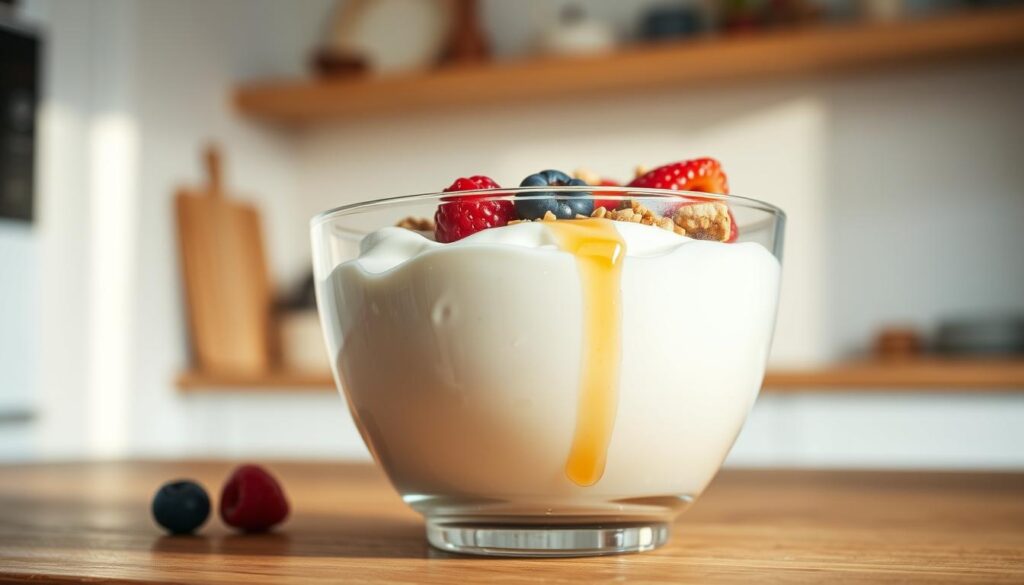
With your ingredients and equipment ready, you can start making your own probiotic-rich vegan yogurt. Add the probiotic capsule to the soy milk and let it sit for 8 to 12 hours. For a tangier flavor, let it sit longer. The yogurt can be stored in the fridge for up to 1 week. You can use it in smoothies or as a topping for oatmeal or fruit.
Using a strong probiotic is crucial for a healthy and delicious homemade vegan yogurt. Probiotic supplements support your immune system and overall health. Making your own probiotic-rich vegan yogurt at home ensures you get the nutrients you need to stay healthy and happy.
Some benefits of making your own homemade vegan yogurt include:
- Control over ingredients and probiotic content
- Customization of flavor and texture
- Cost-effective compared to store-bought options
- Support for your immune system and overall health
Making your own probiotic-rich vegan yogurt is a great way to take control of your health and wellness. With the right ingredients and equipment, you can make a delicious and healthy yogurt. It supports your immune system and overall health. So why not give it a try and see the benefits for yourself?
Choosing the Right Vegan Yogurt for Your Needs
Finding the right vegan options can be tough. Look at the plant-based milk, probiotics, and nutrients. Also, check out the delicious flavors, like vanilla flavors and greek yogurt.
Brands like Daiya, Yoplait Oui, and So Delicious are popular. They have many flavors and textures, including coconut and almond yogurts. Making your own homemade vegan yogurt is also an option. It lets you pick the ingredients and flavors.
When picking a vegan yogurt, think about these things:
* Probiotics
* Nutrients
* Taste and texture
* Ingredients and allergens
This way, you can find a yogurt that fits your needs and tastes.
Conclusion – Embracing Plant-Based Probiotics for Better Health
As you’ve learned, vegan-friendly yogurts are packed with health benefits. They have probiotics that help your gut and overall health.
Adding probiotic-rich foods like kimchi, kombucha, and sauerkraut to your diet is great. You can also try making your own yogurt at home. It’s a fun and rewarding process.
When looking for the best dairy-free yogurt, read labels carefully. Look at the probiotic strains, protein, and sugar content. Making smart choices lets you enjoy the tasty and healthy benefits of plant-based probiotics.
FAQ
Does vegan yogurt have probiotics?
Yes, vegan yogurt can have probiotics. The fermentation process in vegan yogurt grows good bacteria. This includes Streptococcus thermophilus and Lactobacillus bulgaricus, which are good for your gut.
What types of probiotics are found in plant-based yogurts?
Plant-based yogurts often have L. bulgaricus, Streptococcus thermophilus, and Bifidobacterium bifidum. These are similar to the probiotics in dairy yogurt. They help keep your gut healthy.
How do the probiotics in vegan yogurt compare to those in traditional dairy yogurt?
Vegan and dairy yogurts have similar probiotic strains. But, the amounts and types can differ. Always check the label for a variety of live cultures for the best benefits.
What are the health benefits of plant-based probiotic yogurts?
Plant-based yogurts are good for your gut and immune system. They also have a balanced mix of nutrients. Adding them to a plant-based diet can be very beneficial.
How can I make my own probiotic-rich vegan yogurt at home?
Making vegan yogurt at home ensures quality probiotics. You need a yogurt maker, plant-based milk, and probiotic supplement or starter culture. Follow a simple process to make a creamy, tangy yogurt.
What should I consider when choosing a vegan yogurt?
Choose a vegan yogurt with natural ingredients and little added sugar. Look at the plant-based milk, probiotic content, and nutrition. This helps find the best vegan yogurt for you.


